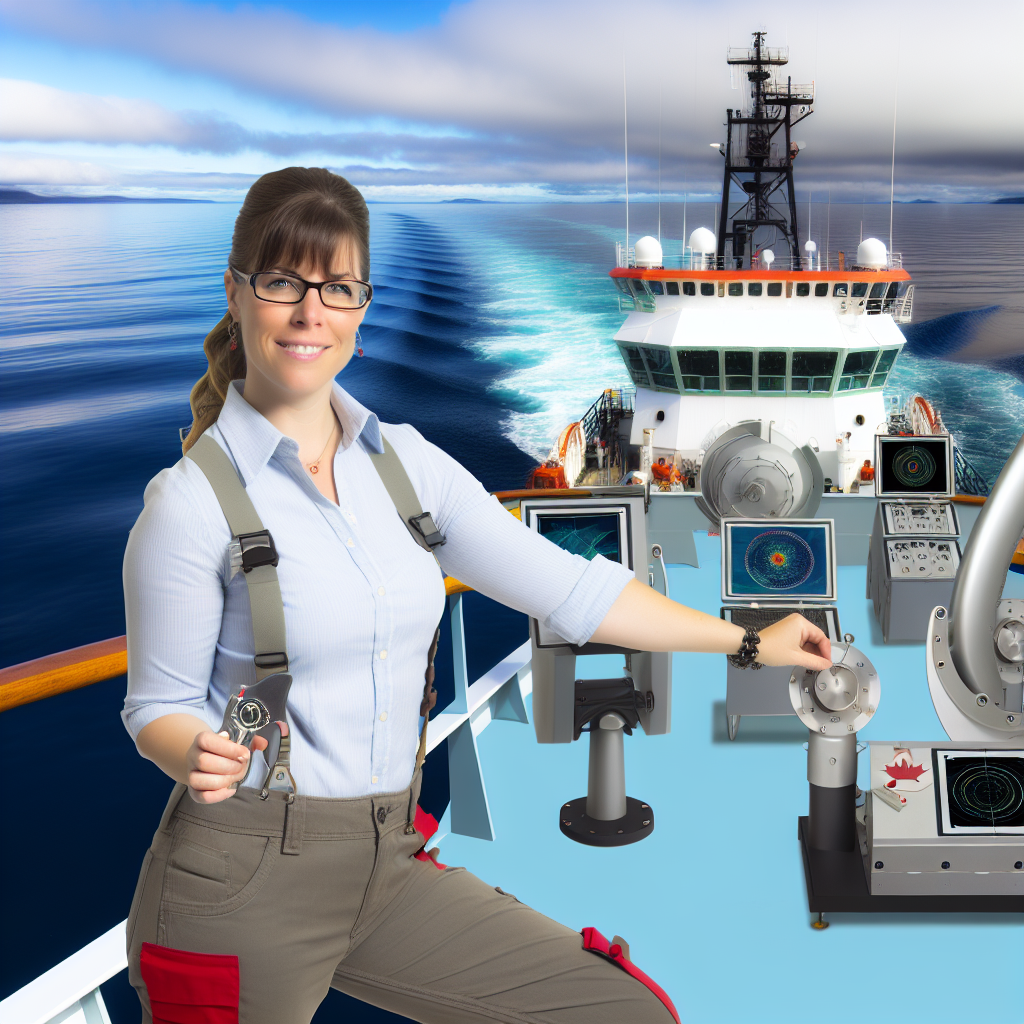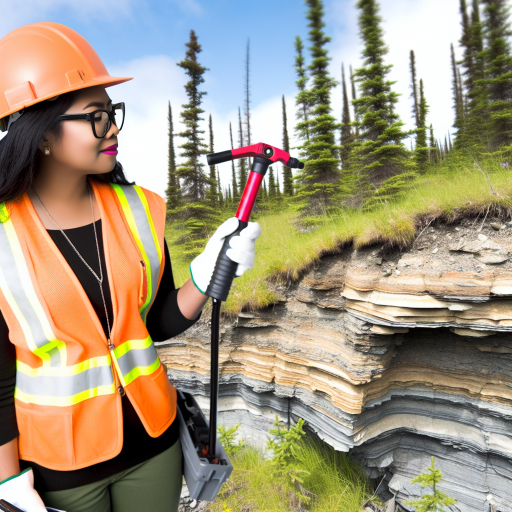Understanding Different Specializations
Introduction to Oceanography
Oceanography is the study of oceans and their processes.
This field encompasses various sub-disciplines.
Each specialization explores different aspects of ocean systems.
Physical Oceanography
Physical oceanography focuses on ocean currents and waves.
This specialization examines the ocean’s physical properties.
It plays an essential role in understanding climate patterns.
Chemical Oceanography
Chemical oceanography studies the chemical composition of ocean waters.
This field investigates the interactions between chemicals and marine life.
It is critical for understanding nutrient cycles in the ocean.
Biological Oceanography
Biological oceanography explores marine ecosystems and organisms.
This area emphasizes the relationships between species in the ocean.
Researchers in this field study biodiversity and fisheries.
Geological Oceanography
Geological oceanography focuses on the geology of the ocean floor.
This discipline examines underwater features and sediment processes.
It is vital for understanding tectonic activities and ocean resources.
Explore Emerging Fields
Oceanography continues to evolve with technological advancements.
Innovative fields like marine biotechnology and ocean robotics are emerging.
These new areas hold great potential for future research and applications.
Interdisciplinary Approaches
Oceanographers often collaborate with other scientific disciplines.
This approach enhances the study of complex ocean phenomena.
For instance, partnerships with meteorologists can improve climate models.
Educational Pathways
Required Degrees
Pursuing a career as an oceanographer typically starts with obtaining a bachelor’s degree.
This degree should be in marine science, biology, geology, or a related field.
Many universities in Canada offer specialized programs for oceanography.
For instance, Dalhousie University has a renowned marine sciences program.
Unlock Your Career Potential
Visualize a clear path to success with our tailored Career Consulting service. Personalized insights in just 1-3 days.
Get StartedSimilarly, Memorial University provides excellent ocean and naval architectural studies.
Consider enrolling in courses that emphasize fieldwork and laboratory experience.
These practical components are crucial for hands-on learning.
Graduate Studies
A master’s degree in oceanography or a related discipline is often required for advanced roles.
This degree allows for specialization in areas like physical oceanography or marine ecology.
Universities such as the University of British Columbia offer graduate programs tailored to ocean studies.
Completing a PhD may be necessary for positions in research or academia.
This level of education enables you to conduct independent research and lead projects.
Certifications and Training
While formal degrees are vital, additional certifications enhance employability.
Consider certifications in scuba diving, underwater research techniques, or remote sensing.
Organizations like the Canadian Association of Geographers provide relevant training opportunities.
Moreover, gaining experience through internships can be highly beneficial.
These internships often lead to valuable networking opportunities within the field.
Continuing Education
The field of oceanography is constantly evolving, so ongoing education is essential.
Stay current by attending workshops, seminars, and conferences.
Participating in online courses can also be advantageous.
Consider engaging with professional organizations to access valuable resources.
These activities will keep your knowledge fresh and relevant in this dynamic field.
Gain Relevant Experience
Importance of Internships
Internships provide hands-on experience in oceanography.
Students should seek internships during their studies.
Many organizations offer summer internships in coastal research.
Interning with government agencies enhances learning opportunities.
Notable agencies include Fisheries and Oceans Canada.
Volunteer Work for Skill Building
Volunteering allows aspiring oceanographers to gain valuable experience.
Local conservation projects often welcome eager volunteers.
Organizations like Ocean Wise offer volunteer programs.
These experiences help build a professional network.
Networking can lead to future employment opportunities.
Field Studies for Practical Knowledge
Participating in field studies enriches practical knowledge.
University-led field studies offer immersive experiences.
Students learn critical research methods during these outings.
Field studies also allow data collection and analysis.
Additionally, they foster teamwork and collaboration skills.
Joining Professional Organizations
Becoming a member of professional organizations is beneficial.
Groups like the Canadian Oceanographic Society facilitate networking.
Membership provides access to exclusive training workshops.
These organizations often offer mentorship programs.
Mentorship can greatly enhance career development.
See Related Content: How Oceanographers Study the Mysteries of the Ocean
Develop Technical Skills
Essential Tools and Technologies in Oceanography
Oceanographers rely on advanced toolsets to study marine environments.
First, they use various types of software for data analysis.
Common options include MATLAB, R, and Python.
These programming languages facilitate complex computations.
Furthermore, GIS technology proves invaluable for mapping.
It allows researchers to visualize oceanographic data efficiently.
Next, oceanographers utilize specialized equipment for field research.
Examples of such equipment are CTD sensors and GPS devices.
CTD sensors measure conductivity, temperature, and depth.
These measurements are crucial for understanding water properties.
Moreover, remotely operated vehicles (ROVs) expand exploration capabilities.
ROVs enable scientists to reach deeper, less accessible locations.
Data acquisition systems also play a significant role.
These systems gather vital information during oceanographic surveys.
In addition to hardware, technical skills are essential.
Oceanographers must master data collection techniques.
Precision is vital when sampling water and sediment.
Furthermore, they need to understand statistical analysis.
This knowledge helps interpret collected data accurately.
Communication skills are equally important in this field.
Oceanographers often present findings to diverse audiences.
Whether at conferences or in publications, clarity is key.
By developing these technical skills, one can thrive in oceanography.
With the right tools and knowledge, career opportunities abound.
Delve into the Subject: Why Genetics Is a Growing Field of Study and Career
Network with Professionals: Joining Associations and Attending Conferences
The Importance of Networking
Networking plays a crucial role in pursuing a career as an oceanographer.
It connects you with industry professionals and fellow students.
Additionally, networking can lead to job opportunities and collaborations.
Joining Professional Associations
Professional associations offer invaluable resources and support.
Organizations such as the Canadian Oceanographic Society provide networking opportunities.
Membership can grant access to exclusive events and publications.
Moreover, associations often provide mentorship programs.
Attending Conferences
Conferences are excellent venues for networking and learning.
They feature presentations from leading oceanographers and researchers.
Participating in discussions can enhance your knowledge and visibility.
Events like the Canadian Coastal Conference attract professionals from various sectors.
Building Relationships
Building relationships is essential for career advancement.
Be proactive in introducing yourself to others in your field.
Follow up with connections you make at events.
Sending a simple thank-you email can leave a lasting impression.
Utilizing Online Platforms
Online platforms like LinkedIn facilitate professional networking.
Join groups related to oceanography and participate in discussions.
Sharing your work and insights can attract attention from potential employers.
Additionally, you can find event announcements and job postings on these platforms.
See Related Content: Skills Geneticists Need to Succeed in Biotechnology

Stay Updated: Following Trends and Advances in Oceanographic Research
Importance of Staying Informed
Staying informed enhances your understanding of oceanography.
It enables you to engage with current research effectively.
Additionally, it helps you anticipate future developments.
Utilizing Online Resources
Many online platforms provide valuable oceanographic information.
Follow websites of prominent oceanographic institutions.
Check for subscriptions to relevant scientific journals.
Engaging with research articles offers insights into recent findings.
Joining Professional Organizations
Membership in professional organizations enhances your network.
Organizations like the Canadian Oceanographic Society offer resources.
Attend conferences to learn about cutting-edge research.
These opportunities also facilitate collaboration with experienced professionals.
Participating in Online Forums
Online forums foster discussion among oceanography enthusiasts.
Joining platforms like ResearchGate or LinkedIn is beneficial.
These communities provide updates on trends and research breakthroughs.
Following Influential Researchers
Identify key scientists in oceanography and follow their work.
Social media platforms often showcase researchers’ latest findings.
Engaging with their work can deepen your knowledge of the field.
Consider attending webinars hosted by these experts.
Staying Updated on Government Policies
Government policies significantly impact oceanographic research funding.
Monitor changes in policies related to marine sciences.
Staying informed about programs allows you to align with national goals.
Participate in discussions regarding environmental impacts and regulations.
Engaging with Educational Opportunities
Many universities offer workshops on recent oceanographic practices.
Look for courses that address current oceanographic challenges.
Participating in these programs strengthens your academic foundation.
Additional skills gained can differentiate you in the job market.
Find Out More: The Future of Geology Careers in Canada
Explore Job Opportunities
Identifying Potential Employers
Start by researching organizations in the field of oceanography.
Government agencies often hire oceanographers for research and management.
Consider the Department of Fisheries and Oceans Canada for federal positions.
Universities and colleges also seek oceanographers for academic roles.
Explore opportunities at institutions like Dalhousie University and University of Victoria.
Research non-profit organizations that focus on marine conservation.
The Ocean Conservancy and the World Wildlife Fund offer various roles.
Private sector companies involved in environmental consulting are also hiring.
Consulting firms such as Tetra Tech and Golder Associates often look for specialists.
Common Job Roles
Oceanographers find diverse roles across various sectors.
Research scientist positions typically involve field studies and data analysis.
Marine policy analysts work on regulations and environmental impact assessments.
Education and outreach specialists help communicate ocean research findings.
Some oceanographers pursue roles in marine resource management.
Data analysts focus on interpreting oceanic data for different applications.
Field technicians support research projects through hands-on work in aquatic environments.
Networking and Job Search Strategies
Join professional organizations to expand your network.
Organizations like the Canadian Meteorological and Oceanographic Society can be valuable.
Participate in conferences and workshops to meet industry leaders.
Online job boards often list opportunities in oceanography.
Utilize platforms such as LinkedIn and Indeed for job postings.
Consider volunteering for marine research projects to gain experience.
Internships provide hands-on experience and professional connections.
Lastly, leverage informational interviews to understand specific career paths.
Consider Graduate Studies
Importance of Advanced Degrees in Oceanography
Pursuing a career in oceanography often requires advanced education.
Graduate studies provide in-depth knowledge of marine systems.
Furthermore, a master’s or PhD can enhance your research skills.
Many employers prefer candidates with advanced degrees.
These degrees open up various specialized fields in oceanography.
They enable oceanographers to tackle complex environmental problems.
Additionally, graduate studies foster connections in the scientific community.
Networking can lead to collaborative research opportunities.
Graduate programs often include valuable hands-on experience.
This practical training is essential for developing necessary skills.
Choosing the Right Graduate Program
Selecting an accredited institution is crucial for your education.
Look for programs with a strong emphasis on marine science.
Research faculty members and their areas of expertise.
An alignment of interests can facilitate better mentorship.
Furthermore, consider schools with access to ocean research facilities.
Fieldwork experience enhances theoretical knowledge.
Evaluate the curriculum for diverse courses in oceanography.
This diversity prepares you for various career paths.
Funding Options for Graduate Studies
Graduate studies can be expensive, but funding is available.
Look for scholarships that support oceanography students.
Grants and fellowships can offset tuition costs.
Many universities offer assistantships with tuition waivers.
Apart from financial aid, consider part-time work options.
These positions can provide practical experience while studying.
Networking can also lead to internship opportunities for funding.




